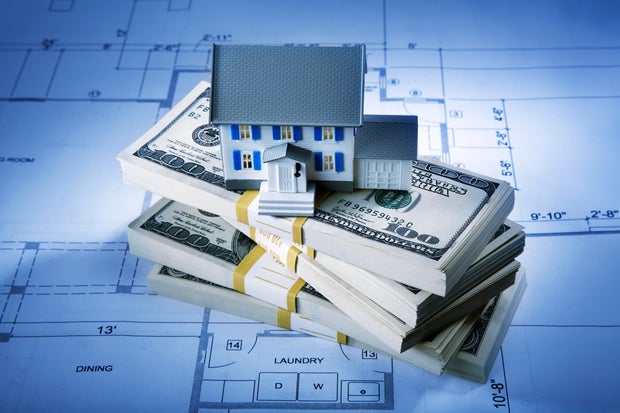You may be charged a fee from the links to the products on this page. Promotions are subject to availability and retailer requirements.

Mortgage Refinancingcan often save you money in the long run But that's not the case. t comes for free.
As with the original mortgage, you will have to pay various closure and other costs when refinancing. It is important to estimate these in advance. Fortunately, there are several online tools that can help you calculate numbers and determine if you can save in the long run.
There are several reasons for refinancing a mortgage, but you should always make sure that the timing ofis correctYou are considering refinancing If so, you need to know the following:
What is refinancing and how does it work?
Refinancing replaces your existing mortgage with a new one. This works as follows: Once you have applied for a new mortgage, submitted your paperwork and approved it, the loan will be used to repay your old mortgage.
Refinancing offers new loans with new interest rates, terms and monthly payments, so many people refinance their mortgages to save money. Do you think you will benefit from refinancing? First, you need to find out the current interest rates and what you can qualify for.
There is also cash out refinancing. This allows you to turn your home equity into cash. With these, you can borrow a new loan that is larger than your current loan. The loan pays off your existing balance and you receive the difference between those two numbers in cash. You can then use these funds as you like (often used for repairs or home remodeling).
Refinancing costs
When refinancing, you will pay the closing costs as you would with your original mortgage. These include appraisal fees, recording fees, origination fees, title insurance and more. These costs can vary widely, butFreddie Mac estimates the average refinancing cost to be around $ 5,000.
Some mortgage companies advertise "no closing costs" refinancing, but these really only pass on the closing costs to the loan balance. In that case, the loan balance will be higher and the long-term interest costs will be higher. Please conduct a survey before submitting the documents. There is an online marketplace that lists potential mortgage lenders that can help.
“Refinancing without closing costs means that you don't have to pay a fee at the time of closing,” explains Matt Vernon, Head of Retail Loans at Bank of America. "But that doesn't mean there are no additional costs. Instead, the closing fee will be included in the loan and you will either increase your principal balance or pay a higher interest rate. Higher interest rates will over time. You will be charged. "
If you refinance your home too soon after you buy it, you may need to pay a prepayment fee to the lender. These penalize the borrower too early to repay the loan (before the lender makes a profit). The exact cost will vary greatly, but you can pay about 2% of your loan balance or interest for 6-12 months.
Finally, you also pay interest on refinancing, which is distributed over time and is included in your monthly payments. The total interest you pay depends on the loan amount, loan duration (length), and interest rate. Usually, according to mortgage buyer Fannie Mae
,credit scoreis over 740 andgives the highest interest rate. Will be. You don't know what your credit score is, don't worry: you can insert some simple information into this online tool to determine your current range. (Good news: if you're not happy, there's always a way to increase yourcredit score).
You also have the option to purchase discount points. This basically allows you to pay a prepaid fee (usually 1% of the loan amount) at a low interest rate.
Pros and cons of refinancing a mortgage
Refinancing a mortgage has many advantages. It reduces your monthly payments and interest costs, helps you repay your loan faster, frees cash flow, or is a coveted fund to repay repairs, medical expenses or debt May help you get.
Refinancing can also help get rid ofprivate mortgage insurance. If you have a floating rate mortgage, you can also move to a fixed rate mortgage. – This increases consistency and protects against future interest rate hikes.
However, the downside is that refinancing costs a lot of initial costs. And if you plan to sell your home in the next few years, you may not even have a break-even point. Generally speaking, you should only refinance if you plan to stay at home until you reach the break-even point or until the refinancing savings exceed your prepaid expenses.
Refinancing cash outs can eat up equity and pose a risk if the value of your home declines. If this is the case, your mortgage balance can be higher than the value of your home. If you need to sell your home, this will be a problem (you won't be able to make enough money to pay off your loan).
Thank you for reading CBS NEWS.
Create a free account or log in to
to take advantage of other features.


